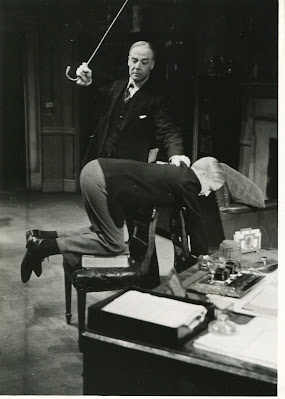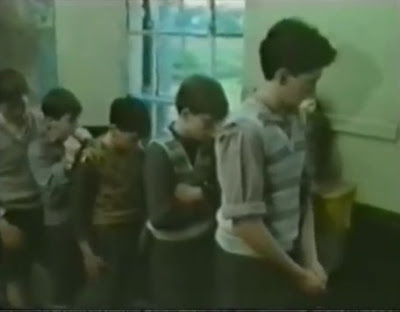Long, long road to outlawing the cane
In prison, you had to get written permission to punish someone, have a doctor present and give the prisoner a kidney shield. In a school, an 18-year-old prefect could do it. – Jacob Middleton who in 2007 researched why British schools continued to use corporal punishment for so many years.
Corporal punishment in
schools in Britain was abolished by law in 1986 but that decision took a long
time coming.
Twenty years after the
event in March 2007, the Times Educational Supplement (TES) reported on research by Jacob
Middleton, of Birkbeck College, University of London, on the reasons why
schools clung to corporal punishment for so long after many countries had
deemed it inhumane.
He found that as early as
the 19th century, arguments were being made to spare the rod.
AJ Mundella, the Liberal
politician who introduced compulsory education in 1870, declared that “education
should be a privilege, not a punishment”. He was supported by members of the
Humanitarian Society, including George Bernard Shaw.
But while social reformers
theorised, classrooms were fast becoming cauldrons of violence. One teacher was
shot by a 14-year-old pupil. Inspectors were scared to enter classrooms without
a gun.
Then, in the 1890s,
classroom teachers were given legitimate power to punish. Tensions in schools
cooled noticeably. Shortly afterwards, resistance to the cane petered out
entirely – “especially since, with the advent of the First World War,
opposition to violence was seen as unpatriotic, ” the TES reported.
But it resurfaced in the
1930s, when advances in psychology prompted people to discuss the damaging
effects of violence on children. And an academic study revealed that corporal
punishment was less effective than letters home, because it could be concealed
from parents.
By then, the penal system
and the army had already abolished the cane.
The TES reported, ‘“Schools
were out on a limb,” said Mr Middleton. “In prison, you had to get written
permission to punish someone, have a doctor present and give the prisoner a
kidney shield. In a school, an 18-year-old prefect could do it.”’
In 1968 teachers themselves
spoke out against corporal punishment, forming the Society of Teachers Opposed
to Physical Punishment (STOPP). But they met determined opposition from
colleagues. Nigel de Gruchy, then general secretary of the National Association
of Schoolmasters, condemned them as “professional traitors”.
“Unions felt that teachers
were experts,” said Mr Middleton. “Teachers knew how to control children, they
knew what was best for them. Any limit on that was an attack on their
professional status.”
In 1982, two mothers
brought a court case claiming that caning their children against their wishes
infringed their human rights as parents. And so, in 1987, corporal punishment
was banned.
“But the heritage is still
in the education system,” said Mr Middleton.
Corporal punishment had
only been outlawed in state-run schools and it was still lawful until 1999 for
independent (from the state) and “faith” schools to use corporal punishment.
“We've still got working
teachers who could use corporal punishment. Some Christian schools are still
arguing for it as part of their freedom of religious expression. If you ask
teachers, would you like more right to discipline children, many will say yes,”
Mr Middleton said.
“I can't see schools making
a concerted effort to bring corporal punishment back, but nothing is ever
inevitable.”
Corporal punishment remains
unlawful in all British schools.
Picture credit:
Dreams of Spanking
Traditionalschooldiscipline@gmail.com







Comments
Post a Comment